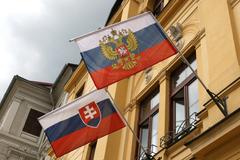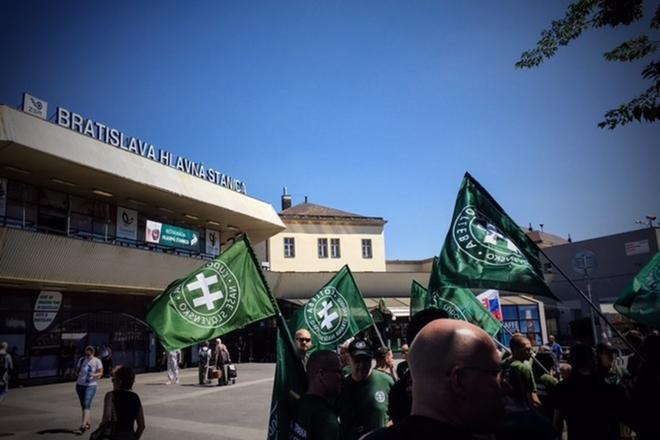The right-wing extremist organisations in central Europe are linked by their inclination towards Russia and its President Vladimir Putin, the survey of the Hungarian institute, Political Capital, suggests.
The findings are based on a comparative analysis of five case studies carried out in central European countries, that were published by the non-governmental Globsec Policy Institute on May 2. The Slovak part of the study was prepared by political scientist Grigorij Mesežnikov and security analyst Radovan Bránik, the SITA newswire reported.
Political Capital launched the project which focuses on the violent consequences of Russian influence in the central European region. It claims that the right-wing extremist organisations, which have targeted mostly national, religious and sexual minorities in the past, have changed their focus to geopolitical questions. The turning point was the crisis in the Ukraine that erupted in 2013, SITA wrote.
In addition to their resistance towards NATO and the European Union, these organisations are linked by their admiration for Russia and Putin.

Mesežnikov and Bránik warn in the study that “the most alarming feature of the Kremlin’s influence on Slovakia is its bondage with violent radicalisation from the bottom up among the far-right parties and paramilitary organisations”.
They offer People’s Party – Our Slovakia (ĽSNS) as an example, saying they follow the pro-Russia, anti-establishment politics of resistance to NATO. Moreover, among its members are people suspected of committing racially-motivated crimes, SITA reported.
Journalists, security experts and analysts from the Czech Republic, Poland, Austria, and Hungary have made similar findings. The authors of the study have revealed many organisations with ideological and personal bonds to Russian entrepreneurs, politicians and diplomats.
Among the examples are the National Militia, which established the illegal “consulate” of the Donetsk People’s Republic in the Czech Republic last year, the Hungarian party Jobbik, which is suspected of espionage for the Russian Federation and various movements in Poland, which have been calling for people to damage statues in western Ukraine, SITA wrote.
Globsec points out that except for xenophobic nationalism, the region is also witnessing expansive and revisionist tendencies. The Pew Global Attitudes study from 2009 suggests that when asked whether parts of neighbouring countries actually belong to the respondents, 66 percent of Bulgarians, 61 percent of Hungarians and 58 percent of Russians provided a positive answer.
Less expansive tendencies were shown by Czechs (40 percent), and Slovaks (29 percent), SITA reported.



 Illustrative stock photo (source: SME)
Illustrative stock photo (source: SME)